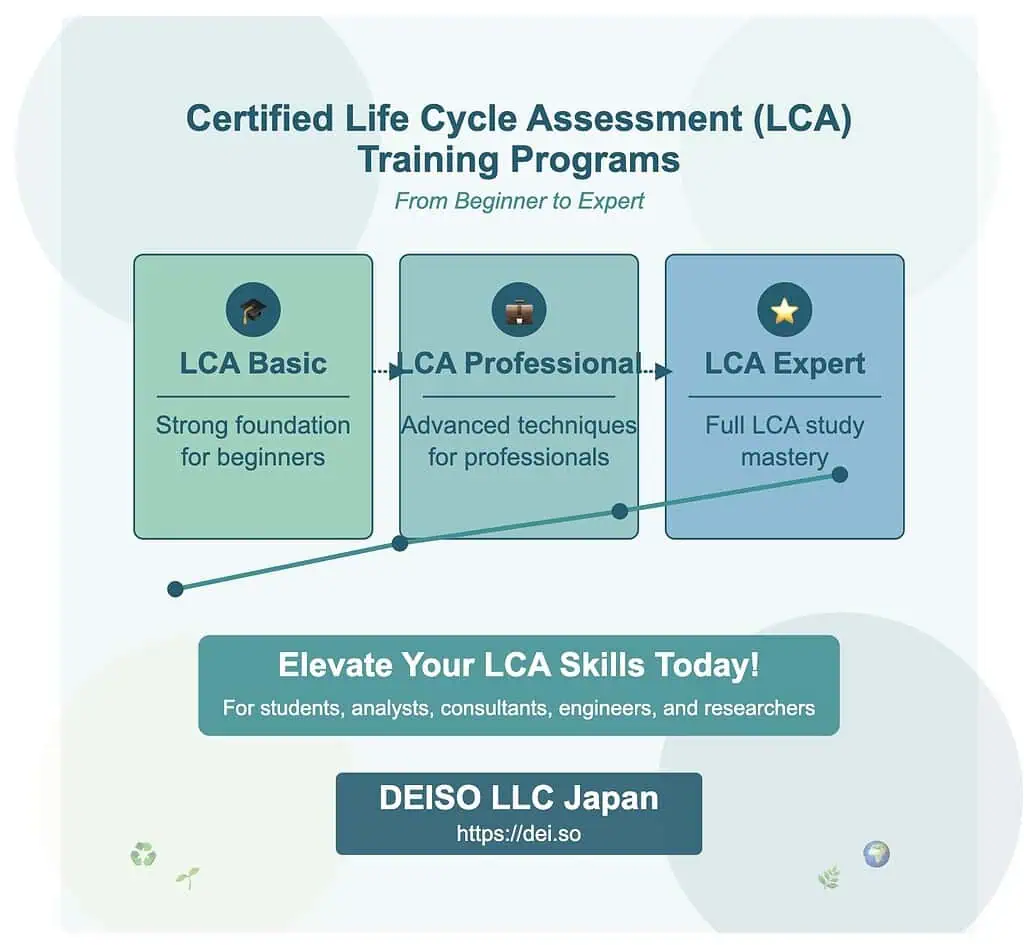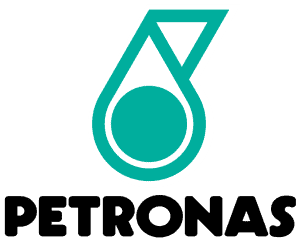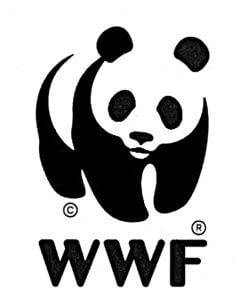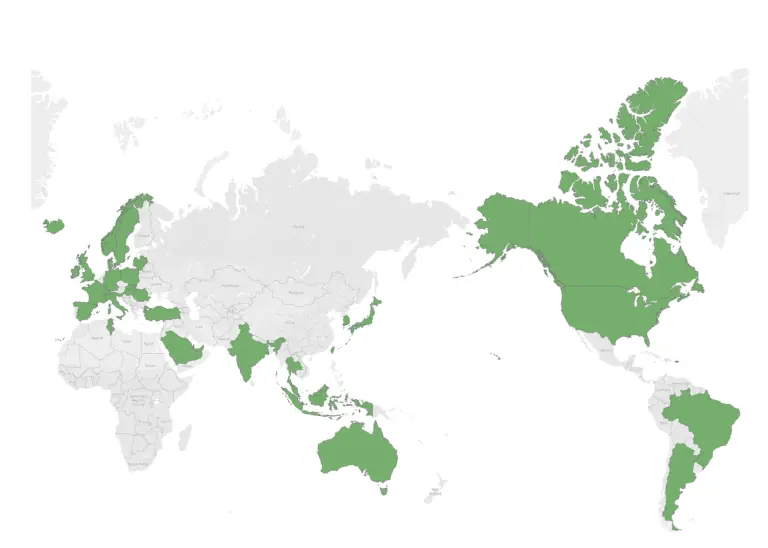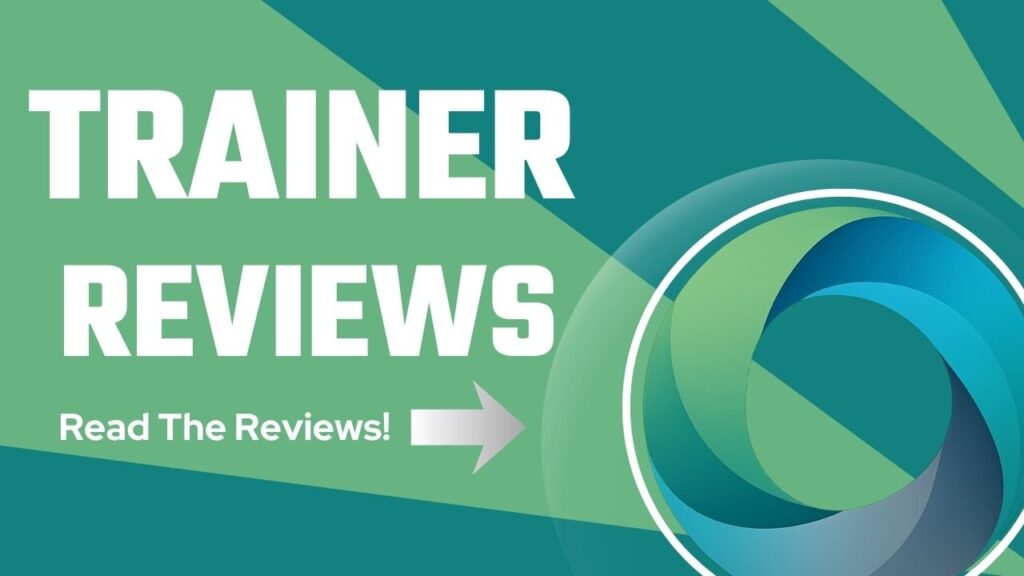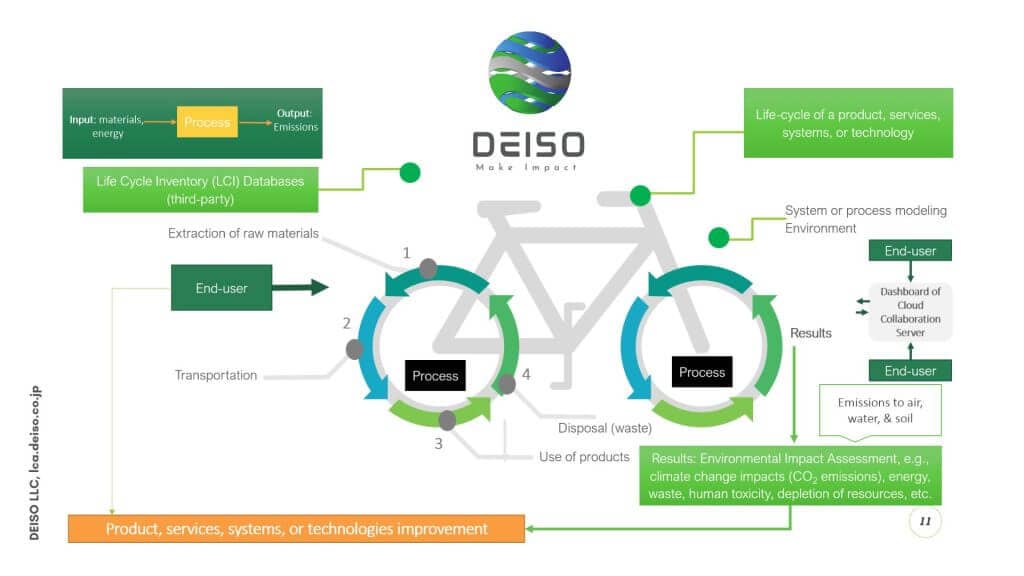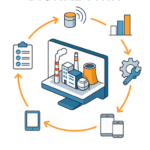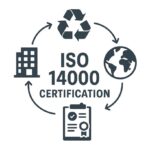4 Hours
LCA Basic
$980
Prices are per trainee
Curriculum & Features
-
English Training The LCA training is conducted in English to ensure accessibility for international participants.
-
Remote Training: "One-to-One" or "One-to-Group Choose your DEISO training delivery: online (remote), at your company's location in Japan, or international locations (overseas). Prices vary for each model, and a minimum number of trainees is required except for online training, which can be one-to-one- or one-to-group. A single trainee is sufficient for online training to deliver the chosen training program.
-
Optional Examination & Training Certificate (Paid) Certificate fees per trainee apply. Contact us for pricing details.
-
Extensive Training The program provides in-depth coverage of LCA concepts, methodologies, and applications.
-
Accelerated Learning Approach The training follows a fast-paced structure to quickly build LCA proficiency.
-
Theoretical Case Studies Real-world LCA examples are used to reinforce theoretical concepts.
-
Theoretical & Practical Training A combination of theoretical learning and hands-on exercises enhances understanding.
-
Zero to Hero LCA The training follows a structured progression from fundamental to expert-level knowledge.
-
LCA Modeling Training includes the creation and interpretation of LCA models.
-
LCA Data Training Focuses on handling, processing, and interpreting LCA-related data.
-
Advanced Life Cycle Assessment Case Study Explores complex case studies for deeper insights into LCA applications.
-
Attributional Life Cycle Assessment Covers the methodological approach to assessing environmental impacts based on current system conditions.
-
Consequential Life Cycle Assessment (CLCA) Examines the broader environmental impacts of decisions beyond the immediate system.
-
How to Communicate your LCA results Provides guidelines on presenting and explaining LCA findings effectively.
-
How to Visualization LCA Results Covers methods to represent LCA results using graphs, charts, and diagrams.
-
How to Collect Supply Chain Data Teaches best practices for gathering reliable supply chain data for LCA.
-
Supply Chain Data Collection Template (Excel) Introduces a structured Excel template for organizing supply chain data.
-
ISO 14040 Demonstration Explains ISO 14040 standards and their application in LCA.
-
ISO 14044 Demonstration Covers the ISO 14044 guidelines for LCA methodology and reporting.
-
Sensitivity Analysis Teaches how to evaluate the impact of changing input parameters in LCA.
-
Uncertainty Analysis Focuses on assessing and managing uncertainties in LCA studies.
-
Trade-Off Analysis Explores methods for comparing environmental trade-offs in different scenarios.
-
Scenario Development (What If Analysis) Guides participants in modeling different scenarios to assess potential environmental impacts.
-
Carbon Footprint Covers methods for measuring and reducing carbon emissions using LCA.
-
Types & Assessment of CO2 Emissions Discusses direct and indirect CO2 emissions assessment methods.
-
Water Footprint Teaches the assessment of water usage and its environmental impact.
-
GHG Emissions Scops 1-3 Explains the three scopes of greenhouse gas (GHG) emissions in LCA.
-
Global Worming Potential (Climate Change) Assessment 28. Global Warming Potential (Climate Change) Assessment – Focuses on quantifying climate change impacts through LCA.
-
LCA Manual Calculations: Liner Approach Covers step-by-step LCA calculations using a linear method.
-
LCA Manual Calculations: Matrix Approach Introduces LCA calculations based on matrix algebra.
-
Manual Calculations with Microsoft Excel Demonstrates LCA calculations using Excel functions and formulas.
-
Midpoint Modeling Focuses on impact assessment at the midpoint category level.
-
Endpoint Modeling Covers endpoint-level impact assessments for LCA interpretation.
-
Unit Process V.S. System Process – Explains the distinction between unit and system processes in LCA.
-
Dealing with Multi-Output Processes Covers allocation methods for systems with multiple outputs.
-
Allocation Methods Introduces different techniques for allocating environmental burdens in LCA.
-
The Cut-Off Method Explains how to exclude certain inputs and outputs in system boundaries.
-
System Expansion Covers the expansion of system boundaries to account for additional processes.
-
Types of LCI Data & Databases Discusses various LCI data sources and database structures.
-
General Principles of LCA Provides an overview of fundamental LCA principles.
-
Principles of System Modeling Covers approaches to defining and modeling LCA systems.
-
Advanced Topics on LCA Explores specialized and emerging LCA methodologies.
-
The Four Phases of LCA Breaks down LCA into goal definition, inventory analysis, impact assessment, and interpretation.
-
System Boundaries ins how to define the limits of an LCA study.
-
Step-by-Step procedures to Performing an LCA Provides a structured workflow for conducting LCA studies.
-
Explains how to define the limits of an LCA study. Describes the functional aspects of a product or system in LCA.
-
Functional Unit/Reference Unit Describes the functional aspects of a product or system in LCA.
-
Inventory Analysis Covers data collection and processing for LCA inventory
-
Input/Output Inventory Details methods for quantifying inputs and outputs in an LCA system.
-
Process Calculations of Inventory Guides participants in performing LCI calculations.
-
LCA Databases Introduces key databases used for LCA studies.
-
Step-by-Step Procedure of Inventory Analysis Breaks down the process of inventory data collection and analysis.
-
LCA Steps: Classification Covers impact category classification in LCA.
-
LCA Steps: Characterization Explains how to quantify environmental impacts in LCA.
-
LCA Optional Steps: Normalization Introduces normalization techniques for comparing LCA results.
-
LCA Optional Steps: Weighting Discusses weighting methods for prioritizing impact categories.
-
LCA Optional Steps: Grouping Explores ways to categorize impact indicators for analysis.
-
Analysis of Inventory Results – Teaches interpretation and validation of LCI data.
-
Focuses on evaluating and interpreting LCIA outcomes.
-
Life Cycle Impact Assessment (LCIA) Methods Introduces key methodologies used in LCIA.
-
The CML Method Explains the CML impact assessment methodology.
-
The IMPACT 2002+ Method Covers the IMPACT 2002+ method for LCIA.
-
ReCiPe 2008/2016 LCIA method 63. ReCiPe 2008/2016 LCIA Method – Discusses
-
IMPACT World+ Explores the IMPACT World+ impact assessment method.
-
Flowcharts & Process Flow Diagram (PFD) Introduces tools for visualizing LCA models.
-
Final Results Interpretation Covers best practices for analyzing and reporting LCA findings.
-
LCA Applications Discusses practical applications of LCA across industries.
-
Calculation by Hand vs Using Software Compares manual LCA calculations with software-based methods.
-
Guideline for the Correct Use of LCA Software Provides recommendations for selecting and using LCA software.
-
Data Availability and LCA Software Selection Covers considerations for choosing an LCA software tool.
-
Applications to Product Comparisons Explores how LCA is used to compare products' environmental performance.
-
Applications to Eco-Design Discusses LCA's role in sustainable product design.
-
Sustainability Assessment Introduces sustainability metrics and assessment techniques in LCA.
Recommended for LCA beginners, students, and decision-makers seeking a fundamental understanding of LCA.
Contact Us
8 Hours
LCA Basic+
$1,480
Prices are per trainee
Curriculum & Features
-
English Training The LCA training is conducted in English to ensure accessibility for international participants.
-
Remote Training: "One-to-One" or "One-to-Group Choose your DEISO training delivery: online (remote), at your company's location in Japan, or international locations (overseas). Prices vary for each model, and a minimum number of trainees is required except for online training, which can be one-to-one- or one-to-group. A single trainee is sufficient for online training to deliver the chosen training program.
-
Optional Examination & Training Certificate (Paid) Participants can opt for a paid exam to receive a certification upon course completion.
-
Certificate fees per trainee apply. Contact us for pricing details. The training program is delivered remotely via Zoom, offering convenient and flexible scheduling. Training is available on-demand and can be tailored for individual or group participants. Upon inquiry, DEISO will propose a training schedule based on the mutual availability of the trainee(s) and the instructor. This proposed schedule can be revised until both parties reach an agreement. Once payment is processed, the training will commence as scheduled.
-
Extensive Training The program provides in-depth coverage of LCA concepts, methodologies, and applications.
-
Accelerated Learning Approach The training follows a fast-paced structure to quickly build LCA proficiency.
-
Theoretical Case Studies Real-world LCA examples are used to reinforce theoretical concepts.
-
Theoretical & Practical Training A combination of theoretical learning and hands-on exercises enhances understanding.
-
Zero to Hero LCA The training follows a structured progression from fundamental to expert-level knowledge.
-
LCA Modeling Training includes the creation and interpretation of LCA models.
-
LCA Data Training Focuses on handling, processing, and interpreting LCA-related data.
-
Advanced Life Cycle Assessment Case Study Explores complex case studies for deeper insights into LCA applications.
-
Attributional Life Cycle Assessment Covers the methodological approach to assessing environmental impacts based on current system conditions.
-
Consequential Life Cycle Assessment (CLCA) Examines the broader environmental impacts of decisions beyond the immediate system.
-
How to Communicate your LCA results Provides guidelines on presenting and explaining LCA findings effectively.
-
How to Visualization LCA Results Covers methods to represent LCA results using graphs, charts, and diagrams.
-
How to Collect Supply Chain Data Teaches best practices for gathering reliable supply chain data for LCA.
-
Supply Chain Data Collection Template (Excel) Introduces a structured Excel template for organizing supply chain data.
-
ISO 14040 Demonstration – Explains ISO 14040 standards and their application in LCA.
-
ISO 14044 Demonstration Covers the ISO 14044 guidelines for LCA methodology and reporting.
-
Sensitivity Analysis Teaches how to evaluate the impact of changing input parameters in LCA.
-
Uncertainty Analysis Focuses on assessing and managing uncertainties in LCA studies.
-
Trade-Off Analysis Explores methods for comparing environmental trade-offs in different scenarios.
-
Scenario Development (What If Analysis) Guides participants in modeling different scenarios to assess potential environmental impacts.
-
Carbon Footprint Covers methods for measuring and reducing carbon emissions using LCA.
-
Types & Assessment of CO2 Emissions Discusses direct and indirect CO2 emissions assessment methods.
-
Water Footprint Teaches the assessment of water usage and its environmental impact.
-
GHG Emissions Scops 1-3 Explains the three scopes of greenhouse gas (GHG) emissions in LCA.
-
Global Worming Potential (Climate Change) Assessment Global Warming Potential (Climate Change) Assessment – Focuses on quantifying climate change impacts through LCA.
-
LCA Manual Calculations: Liner Approach Covers step-by-step LCA calculations using a linear method.
-
LCA Manual Calculations: Matrix Approach Introduces LCA calculations based on matrix algebra.
-
Manual Calculations with Microsoft Excel Demonstrates LCA calculations using Excel functions and formulas.
-
Midpoint Modeling Focuses on impact assessment at the midpoint category level.
-
Endpoint Modeling s endpoint-level impact assessments for LCA interpretation.
-
Unit Process V.S. System Process Explains the distinction between unit and system processes in LCA.
-
Dealing with Multi-Output Processes Covers allocation methods for systems with multiple outputs.
-
Allocation Methods Introduces different techniques for allocating environmental burdens in LCA.
-
The Cut-Off Method Explains how to exclude certain inputs and outputs in system boundaries.
-
System Expansion Covers the expansion of system boundaries to account for additional processes.
-
Types of LCI Data & Databases Discusses various LCI data sources and database structures.
-
General Principles of LCA Principles of LCA – Provides an overview of fundamental LCA principles.
-
Principles of System Modeling Covers approaches to defining and modeling LCA systems.
-
Advanced Topics on LCA Covers approaches to defining and modeling LCA systems. • Advanced Topics on LCA – Explores specialized and emerging LCA methodologies.
-
The Four Phases of LCA Breaks down LCA into goal definition, inventory analysis, impact assessment, and interpretation.
-
System Boundaries Explains how to define the limits of an LCA study.
-
Step-by-Step procedures to Performing an LCA its of an LCA study. • Step-by-Step Procedures to Performing an LCA – Provides a structured workflow for conducting LCA studies.
-
System Function Describes the functional aspects of a product or system in LCA.
-
Functional Unit/Reference Unit Describes the functional aspects of a product or system in LCA.
-
Inventory Analysis Covers data collection and processing for LCA inventory.
-
Input/Output Inventory Details methods for quantifying inputs and outputs in an LCA system.
-
Process Calculations of Inventory Guides participants in performing LCI calculations.
-
LCA Databases Introduces key databases used for LCA studies.
-
Step-by-Step Procedure of Inventory Analysis Breaks down the process of inventory data collection and analysis.
-
LCA Steps: Classification Covers impact category classification in LCA.
-
LCA Steps: Characterization Explains how to quantify environmental impacts in LCA.
-
LCA Optional Steps: Normalization Introduces normalization techniques for comparing LCA results.
-
LCA Optional Steps: Weighting Discusses weighting methods for prioritizing impact categories.
-
LCA Optional Steps: Grouping Explores ways to categorize impact indicators for analysis.
-
Analysis of Inventory Results Teaches interpretation and validation of LCI data.
-
Life Cycle Impact Assessment (LCIA) Methods Introduces key methodologies used in LCIA.
-
Life Cycle Impact Assessment (LCIA) Methods Life Cycle Impact Assessment (LCIA) Methods – Introduces key methodologies used in LCIA.
-
The CML Method Explains the CML impact assessment methodology.
-
The IMPACT 2002+ Method vers the IMPACT 2002+ method for LCIA.
-
ReCiPe 2008/2016 LCIA method Discusses the ReCiPe LCIA methodologies.
-
IMPACT World+ – Explores the IMPACT World+ impact assessment method.
-
Flowcharts & Process Flow Diagram (PFD) Introduces tools for visualizing LCA models.
-
Final Results Interpretation Covers best practices for analyzing and reporting LCA findings.
-
LCA Applications LCA Applications – Discusses practical applications of LCA across industries.
-
Calculation by Hand vs Using Software Compares manual LCA calculations with software-based methods.
-
Guideline for the Correct Use of LCA Software Provides recommendations for selecting and using LCA software.
-
Data Availability and LCA Software Selection Covers considerations for choosing an LCA software tool.
-
Applications to Product Comparisons Explores how LCA is used to compare products' environmental performance.
-
Applications to Eco-Design Discusses LCA's role in sustainable product design.
-
Sustainability Assessment Introduces sustainability metrics and assessment techniques in LCA.
Recommended for LCA beginners, students, sustainability professionals, and decision-makers seeking a fundamental understanding of LCA beyond the "Basic" plan.
Contact Us
12 Hours
LCA Professional
$1,980
Prices are per trainee
Curriculum & Features
-
English Training The LCA training is conducted in English to ensure accessibility for international participants.
-
Remote Training: "One-to-One" or "One-to-Group The training program is delivered remotely via Zoom, offering convenient and flexible scheduling. Training is available on-demand and can be tailored for individual or group participants. Upon inquiry, DEISO will propose a training schedule based on the mutual availability of the trainee(s) and the instructor. This proposed schedule can be revised until both parties reach an agreement. Once payment is processed, the training will commence as scheduled.
-
Optional Examination & Training Certificate (Paid) Certificate fees per trainee apply. Contact us for pricing details.
-
Extensive Training The program provides in-depth coverage of LCA concepts, methodologies, and applications.
-
Accelerated Learning Approach he training follows a fast-paced structure to quickly build LCA proficiency.
-
Theoretical Case Studies Real-world LCA examples are used to reinforce theoretical concepts.
-
Theoretical & Practical Training A combination of theoretical learning and hands-on exercises enhances understanding.
-
Zero to Hero LCA The 'Zero to Hero' method builds mastery by starting with the basics and progressing to advanced expertise. – The training follows a structured progression from fundamental to expert-level knowledge.
-
LCA Modeling Training includes the creation and interpretation of LCA models.
-
LCA Data Training Focuses on handling, processing, and interpreting LCA-related data.
-
Advanced Life Cycle Assessment Case Study Explores complex case studies for deeper insights into LCA applications.
-
Attributional Life Cycle Assessment Covers the methodological approach to assessing environmental impacts based on current system conditions.
-
Consequential Life Cycle Assessment (CLCA) Examines the broader environmental impacts of decisions beyond the immediate system.
-
How to Communicate your LCA results Provides guidelines on presenting and explaining LCA findings effectively.
-
How to Visualization LCA Results Covers methods to represent LCA results using graphs, charts, and diagrams.
-
How to Collect Supply Chain Data Teaches best practices for gathering reliable supply chain data for LCA.
-
Supply Chain Data Collection Template (Excel) Introduces a structured Excel template for organizing supply chain data.
-
ISO 14040 Demonstration xplains ISO 14040 standards and their application in LCA.
-
ISO 14044 Demonstration Covers the ISO 14044 guidelines for LCA methodology and reporting.
-
Sensitivity Analysis Teaches how to evaluate the impact of changing input parameters in LCA.
-
Uncertainty Analysis ocuses on assessing and managing uncertainties in LCA studies.
-
Trade-Off Analysis Explores methods for comparing environmental trade-offs in different scenarios.
-
Scenario Development (What If Analysis) uides participants in modeling different scenarios to assess potential environmental impacts.
-
Carbon Footprint Covers methods for measuring and reducing carbon emissions using LCA.
-
Types & Assessment of CO2 Emissions Discusses direct and indirect CO2 emissions assessment methods.
-
Water Footprint hes the assessment of water usage and its environmental impact.
-
GHG Emissions Scops 1-3 Explains the three scopes of greenhouse gas (GHG) emissions in LCA.
-
Global Worming Potential (Climate Change) Assessment Global Warming Potential (Climate Change) Assessment – Focuses on quantifying climate change impacts through LCA.
-
LCA Manual Calculations: Liner Approach Covers step-by-step LCA calculations using a linear method.
-
LCA Manual Calculations: Matrix Approach Introduces LCA calculations based on matrix algebra.
-
Manual Calculations with Microsoft Excel Demonstrates LCA calculations using Excel functions and formulas.
-
Midpoint Modeling uses on impact assessment at the midpoint category level.
-
Endpoint Modeling Covers endpoint-level impact assessments for LCA interpretation.
-
Unit Process V.S. System Process Explains the distinction between unit and system processes in LCA.
-
Dealing with Multi-Output Processes Covers allocation methods for systems with multiple outputs.
-
Allocation Methods Introduces different techniques for allocating environmental burdens in LCA.
-
The Cut-Off Method Explains how to exclude certain inputs and outputs in system boundaries.
-
System Expansion Covers the expansion of system boundaries to account for additional processes.
-
Types of LCI Data & Databases Discusses various LCI data sources and database structures.
-
General Principles of LCA ovides an overview of fundamental LCA principles.
-
Principles of System Modeling Covers approaches to defining and modeling LCA systems.
-
Advanced Topics on LCA Explores specialized and emerging LCA methodologies.
-
The Four Phases of LCA Breaks down LCA into goal definition, inventory analysis, impact assessment, and interpretation.
-
System Boundaries Explains how to define the limits of an LCA study.
-
Step-by-Step procedures to Performing an LCA Provides a structured workflow for conducting LCA studies.
-
System Function Describes the functional aspects of a product or system in LCA.
-
Functional Unit/Reference Unit Explains the importance of selecting an appropriate functional unit.
-
Inventory Analysis Covers data collection and processing for LCA inventory.
-
Input/Output Inventory Details methods for quantifying inputs and outputs in an LCA system.
-
Process Calculations of Inventory Guides participants in performing LCI calculations.
-
LCA Databases Introduces key databases used for LCA studies.
-
Step-by-Step Procedure of Inventory Analysis Breaks down the process of inventory data collection and analysis.
-
LCA Steps: Classification Covers impact category classification in LCA.
-
LCA Steps: Characterization Explains how to quantify environmental impacts in LCA.
-
LCA Optional Steps: Normalization Introduces normalization techniques for comparing LCA results.
-
LCA Optional Steps: Weighting LCA Optional Steps: Weighting – Discusses weighting methods for prioritizing impact categories.
-
LCA Optional Steps: Grouping plores ways to categorize impact indicators for analysis.
-
Analysis of Inventory Results Teaches interpretation and validation of LCI data.
-
Analysis of Life Cycle Impact Assessment (LCAI) Results Focuses on evaluating and interpreting LCIA outcomes.
-
Life Cycle Impact Assessment (LCIA) Methods Introduces key methodologies used in LCIA.
-
The CML Method ns the CML impact assessment methodology.
-
The IMPACT 2002+ Method Covers the IMPACT 2002+ method for LCIA.
-
ReCiPe 2008/2016 LCIA method Discusses the ReCiPe LCIA methodologies.
-
IMPACT World+ Explores the IMPACT World+ impact assessment method.
-
Flowcharts & Process Flow Diagram (PFD) Introduces tools for visualizing LCA models.
-
Final Results Interpretation Covers best practices for analyzing and reporting LCA findings.
-
LCA Applications Discusses practical applications of LCA across industries.
-
Calculation by Hand vs Using Software Compares manual LCA calculations with software-based methods.
-
Guideline for the Correct Use of LCA Software Provides recommendations for selecting and using LCA software.
-
Data Availability and LCA Software Selection Covers considerations for choosing an LCA software tool.
-
Applications to Product Comparisons Explores how LCA is used to compare products' environmental performance.
-
Applications to Eco-Design Discusses LCA's role in sustainable product design.
-
Sustainability Assessment Introduces sustainability metrics and assessment techniques in LCA.
Recommended for sustainability analysts, independent consultants, and PhD students.
Contact Us
16 Hours
LCA Expert
$2,480
Prices are per trainee
Curriculum & Features
-
English Training The LCA training is conducted in English to ensure accessibility for international participants.
-
Remote Training: "One-to-One" or "One-to-Group The training program is delivered remotely via Zoom, offering convenient and flexible scheduling. Training is available on-demand and can be tailored for individual or group participants. Upon inquiry, DEISO will propose a training schedule based on the mutual availability of the trainee(s) and the instructor. This proposed schedule can be revised until both parties reach an agreement. Once payment is processed, the training will commence as scheduled.
-
Optional Examination & Training Certificate (Paid) Participants can opt for a paid exam to receive a certification upon course completion.
-
Extensive Training he program provides in-depth coverage of LCA concepts, methodologies, and applications.
-
Accelerated Learning Approach The training follows a fast-paced structure to quickly build LCA proficiency.
-
Theoretical Case Studies Real-world LCA examples are used to reinforce theoretical concepts.
-
Theoretical & Practical Training A combination of theoretical learning and hands-on exercises enhances understanding.
-
'Zero to Hero' The training follows a structured progression from fundamental to expert-level knowledge.
-
LCA Modeling Training includes the creation and interpretation of LCA models.
-
LCA Data Training Focuses on handling, processing, and interpreting LCA-related data.
-
Advanced Life Cycle Assessment Case Study Explores complex case studies for deeper insights into LCA applications.
-
Attributional Life Cycle Assessment Covers the methodological approach to assessing environmental impacts based on current system conditions.
-
Consequential Life Cycle Assessment (CLCA) Examines the broader environmental impacts of decisions beyond the immediate system.
-
How to Communicate your LCA results Provides guidelines on presenting and explaining LCA findings effectively.
-
How to Visualization LCA Results Covers methods to represent LCA results using graphs, charts, and diagrams.
-
How to Collect Supply Chain Data Teaches best practices for gathering reliable supply chain data for LCA.
-
Supply Chain Data Collection Template (Excel) Introduces a structured Excel template for organizing supply chain data.
-
ISO 14040 Demonstration Explains ISO 14040 standards and their application in LCA.
-
ISO 14044 Demonstration Covers the ISO 14044 guidelines for LCA methodology and reporting.
-
Sensitivity Analysis Teaches how to evaluate the impact of changing input parameters in LCA.
-
Uncertainty Analysis uses on assessing and managing uncertainties in LCA studies.
-
Trade-Off Analysis Explores methods for comparing environmental trade-offs in different scenarios.
-
Scenario Development (What If Analysis) Guides participants in modeling different scenarios to assess potential environmental impacts.
-
Carbon Footprint Covers methods for measuring and reducing carbon emissions using LCA.
-
Types & Assessment of CO2 Emissions Discusses direct and indirect CO2 emissions assessment methods.
-
Water Footprint Teaches the assessment of water usage and its environmental impact.
-
GHG Emissions Scopes 1-3 Explains the three scopes of greenhouse gas (GHG) emissions in LCA.
-
Global Worming Potential (Climate Change) Assessment Focuses on quantifying climate change impacts through LCA.
-
LCA Manual Calculations: Liner Approach Covers step-by-step LCA calculations using a linear method.
-
LCA Manual Calculations: Matrix Approach Introduces LCA calculations based on matrix algebra.
-
Manual Calculations with Microsoft Excel Demonstrates LCA calculations using Excel functions and formulas.
-
Midpoint Modeling Focuses on impact assessment at the midpoint category level.
-
Endpoint Modeling Covers endpoint-level impact assessments for LCA interpretation.
-
Unit Process V.S. System Process Explains the distinction between unit and system processes in LCA.
-
Dealing with Multi-Output Processes Covers allocation methods for systems with multiple outputs.
-
Introduces different techniques for allocating environmental burdens in LCA.
-
The Cut-Off Method Explains how to exclude certain inputs and outputs in system boundaries.
-
System Expansion Covers the expansion of system boundaries to account for additional processes.
-
Types of LCI Data & Databases Discusses various LCI data sources and database structures.
-
General Principles of LCA Provides an overview of fundamental LCA principles.
-
Principles of System Modeling Covers approaches to defining and modeling LCA systems.
-
Advanced Topics on LCA Explores specialized and emerging LCA methodologies.
-
The Four Phases of LCA Breaks down LCA into goal definition, inventory analysis, impact assessment, and interpretation.
-
System Boundaries Explains how to define the limits of an LCA study.
-
Step-by-Step procedures to Performing an LCA Provides a structured workflow for conducting LCA studies.
-
System Function Describes the functional aspects of a product or system in LCA.
-
Functional Unit/Reference Unit Explains the importance of selecting an appropriate functional unit.
-
Inventory Analysis Covers data collection and processing for LCA inventory.
-
Input/Output Inventory Details methods for quantifying inputs and outputs in an LCA system.
-
Process Calculations of Inventory Guides participants in performing LCI calculations.
-
LCA Databases duces key databases used for LCA studies.
-
Step-by-Step Procedure of Inventory Analysis Breaks down the process of inventory data collection and analysis.
-
LCA Steps: Classification Covers impact category classification in LCA.
-
LCA Steps: Characterization Explains how to quantify environmental impacts in LCA.
-
LCA Optional Steps: Normalization Introduces normalization techniques for comparing LCA results.
-
LCA Optional Steps: Weighting Discusses weighting methods for prioritizing impact categories.
-
LCA Optional Steps: Grouping Explores ways to categorize impact indicators for analysis.
-
Analysis of Inventory Results Teaches interpretation and validation of LCI data.
-
Analysis of Life Cycle Impact Assessment (LCAI) Results Focuses on evaluating and interpreting LCIA outcomes.
-
Life Cycle Impact Assessment (LCIA) Methods Introduces key methodologies used in LCIA.
-
The CML Method Explains the CML impact assessment methodology.
-
The IMPACT 2002+ Method Covers the IMPACT 2002+ method for LCIA.
-
ReCiPe 2008/2016 LCIA method Discusses the ReCiPe LCIA methodologies.
-
IMPACT World+ Explores the IMPACT World+ impact assessment method.
-
Flowcharts & Process Flow Diagram (PFD) World+ impact assessment method. • Flowcharts & Process Flow Diagram (PFD) – Introduces tools for visualizing LCA models.
-
Final Results Interpretation Covers best practices for analyzing and reporting LCA findings.
-
LCA Applications Discusses practical applications of LCA across industries.
-
Calculation by Hand vs Using Software mpares manual LCA calculations with software-based methods.
-
Guideline for the Correct Use of LCA Software Provides recommendations for selecting and using LCA software.
-
Data Availability and LCA Software Selection Covers considerations for choosing an LCA software tool.
-
Applications to Product Comparisons Explores how LCA is used to compare products' environmental performance.
-
Applications to Eco-Design Discusses LCA's role in sustainable product design.
-
Sustainability Assessment Introduces sustainability metrics and assessment techniques in LCA.
Recommended for sustainability analysts, independent consultants, environmental engineers, researchers, and R&D team members.
Contact Us
20 Hours
LCA Expert+
$2,900
Prices are per trainee
Curriculum & Features
-
English Training The LCA training is conducted in English to ensure accessibility for international participants.
-
Remote Training: "One-to-One" or "One-to-Group The training program is delivered remotely via Zoom, offering convenient and flexible scheduling. Training is available on-demand and can be tailored for individual or group participants. Upon inquiry, DEISO will propose a training schedule based on the mutual availability of the trainee(s) and the instructor. This proposed schedule can be revised until both parties reach an agreement. Once payment is processed, the training will commence as scheduled.
-
Optional Examination & Training Certificate (Paid) Certificate fees per trainee apply. Contact us for pricing details.
-
Accelerated Learning Approach The training follows a fast-paced structure to quickly build LCA proficiency.
-
Theoretical Case Studies eal-world LCA examples are used to reinforce theoretical concepts.
-
Theoretical & Practical Training A combination of theoretical learning and hands-on exercises enhances understanding.
-
The 'Zero to Hero' method builds mastery by starting with the basics and progressing to advanced expertise. The 'Zero to Hero' method builds mastery by starting with the basics and progressing to advanced expertise.
-
LCA Modeling Training includes the creation and interpretation of LCA models.
-
LCA Data Training Focuses on handling, processing, and interpreting LCA-related data.
-
Advanced Life Cycle Assessment Case Study Explores complex case studies for deeper insights into LCA applications.
-
Attributional Life Cycle Assessment Covers the methodological approach to assessing environmental impacts based on current system conditions.
-
Consequential Life Cycle Assessment (CLCA) Examines the broader environmental impacts of decisions beyond the immediate system.
-
How to Communicate your LCA results Provides guidelines on presenting and explaining LCA findings effectively.
-
How to Visualization LCA Results Covers methods to represent LCA results using graphs, charts, and diagrams.
-
How to Collect Supply Chain Data Teaches best practices for gathering reliable supply chain data for LCA.
-
Supply Chain Data Collection Template (Excel) Introduces a structured Excel template for organizing supply chain data.
-
ISO 14040 Demonstration ns ISO 14040 standards and their application in LCA.
-
ISO 14044 Demonstration Covers the ISO 14044 guidelines for LCA methodology and reporting.
-
Sensitivity Analysis Teaches how to evaluate the impact of changing input parameters in LCA.
-
Uncertainty Analysis Focuses on assessing and managing uncertainties in LCA studies.
-
Trade-Off Analysis Explores methods for comparing environmental trade-offs in different scenarios.
-
Scenario Development (What If Analysis) Guides participants in modeling different scenarios to assess potential environmental impacts.
-
Carbon Footprint Covers methods for measuring and reducing carbon emissions using LCA.
-
Types & Assessment of CO2 Emissions Discusses direct and indirect CO2 emissions assessment methods.
-
Water Footprint Teaches the assessment of water usage and its environmental impact.
-
GHG Emissions Scopes 1-3 Explains the three scopes of greenhouse gas (GHG) emissions in LCA.
-
Global Worming Potential (Climate Change) Assessment Global Warming Potential (Climate Change) Assessment – Focuses on quantifying climate change impacts through LCA.
-
LCA Manual Calculations: Liner Approach Covers step-by-step LCA calculations using a linear method.
-
LCA Manual Calculations: Matrix Approach Introduces LCA calculations based on matrix algebra.
-
Manual Calculations with Microsoft Excel Demonstrates LCA calculations using Excel functions and formulas.
-
Midpoint Modeling Focuses on impact assessment at the midpoint category level.
-
Endpoint Modeling Covers endpoint-level impact assessments for LCA interpretation.
-
Unit Process V.S. System Process Explains the distinction between unit and system processes in LCA.
-
Dealing with Multi-Output Processes Covers allocation methods for systems with multiple outputs.
-
Allocation Methods Introduces different techniques for allocating environmental burdens in LCA.
-
The Cut-Off Method Explains how to exclude certain inputs and outputs in system boundaries.
-
System Expansion Covers the expansion of system boundaries to account for additional processes.
-
Types of LCI Data & Databases Types of LCI Data & Databases – Discusses various LCI data sources and database structures.
-
General Principles of LCA Provides an overview of fundamental LCA principles.
-
Principles of System Modeling Covers approaches to defining and modeling LCA systems.
-
Advanced Topics on LCA Explores specialized and emerging LCA methodologies.
-
The Four Phases of LCA Breaks down LCA into goal definition, inventory analysis, impact assessment, and interpretation.
-
System Boundaries lains how to define the limits of an LCA study.
-
Step-by-Step procedures to Performing an LCA Provides a structured workflow for conducting LCA studies.
-
System Function Describes the functional aspects of a product or system in LCA.
-
Functional Unit/Reference Unit Explains the importance of selecting an appropriate functional unit.
-
Inventory Analysis Covers data collection and processing for LCA inventory.
-
Input/Output Inventory Details methods for quantifying inputs and outputs in an LCA system.
-
Process Calculations of Inventory Guides participants in performing LCI calculations.
-
LCA Databases Introduces key databases used for LCA studies.
-
Step-by-Step Procedure of Inventory Analysis Breaks down the process of inventory data collection and analysis.
-
LCA Steps: Classification Covers impact category classification in LCA.
-
LCA Steps: Characterization Explains how to quantify environmental impacts in LCA.
-
LCA Optional Steps: Normalization Introduces normalization techniques for comparing LCA results.
-
LCA Optional Steps: Weighting Discusses weighting methods for prioritizing impact categories.
-
LCA Optional Steps: Grouping Explores ways to categorize impact indicators for analysis.
-
Analysis of Inventory Results Teaches interpretation and validation of LCI data.
-
Analysis of Life Cycle Impact Assessment (LCAI) Results Focuses on evaluating and interpreting LCIA outcomes.
-
Life Cycle Impact Assessment (LCIA) Methods Introduces key methodologies used in LCIA.
-
The CML Method Explains the CML impact assessment methodology.
-
The IMPACT 2002+ Method ers the IMPACT 2002+ method for LCIA.
-
ReCiPe 2008/2016 LCIA method iscusses the ReCiPe LCIA methodologies.
-
IMPACT World+ Explores the IMPACT World+ impact assessment method.
-
Flowcharts & Process Flow Diagram (PFD) Introduces tools for visualizing LCA models.
-
Final Results Interpretation overs best practices for analyzing and reporting LCA findings.
-
LCA Applications Discusses practical applications of LCA across industries.
-
Calculation by Hand vs Using Software Compares manual LCA calculations with software-based methods.
-
Guideline for the Correct Use of LCA Software Provides recommendations for selecting and using LCA software.
-
Data Availability and LCA Software Selection Covers considerations for choosing an LCA software tool.
-
Applications to Product Comparisons xplores how LCA is used to compare products' environmental performance.
-
Applications to Eco-Design Discusses LCA's role in sustainable product design.
-
Sustainability Assessment Introduces sustainability metrics and assessment techniques in LCA.
Recommended for sustainability analysts, independent consultants, environmental engineers, researchers, R&D team members, and consultancy firms looking to provide LCA consultation, as well as all learners aiming to go beyond the "Expert" plan.
Contact Us

